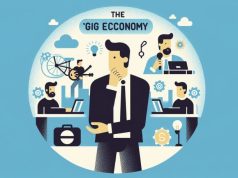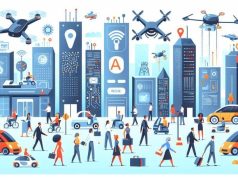In the digital era where the glow of a smartphone screen can signal the beckoning of work after-hours, the once sacrosanct 9-to-5 work structure is undergoing a profound metamorphosis. We are witnessing the dawn of a new epoch where the measures of productivity are no longer tethered to the rigid clocking in and out of an office. But what does this mean for workers, and how can companies like The Work Times lead the charge in redefining productivity?
As an experienced Educational Reformer, I posit that in order to truly understand and redefine productivity, we must embrace a holistic view that goes beyond mere output. It’s about recognizing that employees are not cogs in a machine but multifaceted individuals with diverse work styles, personal commitments, and a need for balance that respects their well-being.
Emerging time management techniques are now accommodating flexible schedules, promoting remote working, and valuing results over hours spent at a desk. These changes are not just a response to technological advancements; they reflect a larger cultural shift towards work-life integration. Rather than compartmentalizing life and work into separate boxes, there’s a growing trend to interweave them harmoniously.
The psychological and social implications of this shift are profound. Workers are experiencing lower levels of burnout as they gain control over their schedules, demonstrating that autonomy can be a significant driver of satisfaction and efficiency. Companies adopting these flexible practices report higher productivity levels, an uptick in employee morale, and a compelling competitive edge in attracting top talent.
However, the transition from a 9-to-5 mindset to a results-oriented work environment is not without its challenges. It requires a rethinking of how we define and measure success. What metrics are we using? Are they reflective of the quality, innovation, and impact of the work being done? The Work Times has an opportunity to lead this conversation, to establish benchmarks that matter, and to illuminate the nuances of a truly productive workforce.
The implications for the future of work are vast. We stand at the precipice of a revolution that calls for thought leaders, managers, and workers alike to engage in a dialogue about the nature of productivity. This conversation must include an examination of prejudices against non-traditional work hours, the role of technology in enabling or encroaching on worker autonomy, and the necessary support structures that must be in place to facilitate this transition.
Through informed discussions and mindful implementations, The Work Times can exemplify the evolution of the workplace. Let us not just chase productivity, but redefine it in a manner that uplifts the human spirit, invigorates the corporate ethos, and shapes an environment where work serves life, not the other way around. As we ponder the future of work, let’s imagine a world where productivity is not just about the bottom line, but about nurturing a society where each individual can thrive.
It’s time to redefine productivity, and The Work Times is poised at the forefront of this transformative journey. Join us as we explore the boundaries of what’s possible in the modern workplace and lead a workforce ready to embrace the future.




























